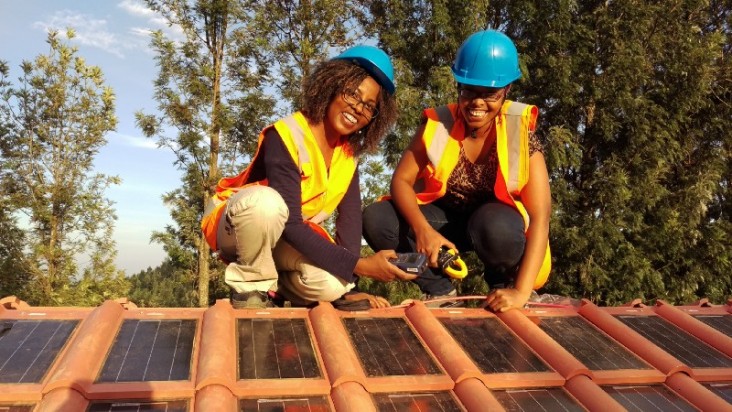
Globally, the energy sector is one of the least gender diverse. We need to close this gender gap because women are key drivers of innovative and inclusive solutions. A clean energy transition will require adoption of innovative solutions, business models and greater participation of a diverse talent pool. But nearly a third of the energy sector worldwide misses out on the full benefits of a diverse workforce as women participation remains low. According to the Clinton Climate Initiative, women constitute only five percent of board executives across the global power and utilities sector.
The gender gap in leadership positions is holding back innovation as women’s authority and influence can have a substantial impact on the sector’s future. We cannot talk of enhancing sustainable energy without highlighting the role of women in the energy sector. Gender mainstreaming is a way for enhancing the energy sector as well as an ideal solution to energy poverty and mitigation efforts. It is a fundamental component of Africa’s economic development and sustainable environment.
Women play a major role in the energy sector – from policymaking and providing legal services to decision-making within utilities, government entities and regulatory bodies. Women participation in the sector is important in achieving ambitious goals and targets in various segments of the energy sector. Energy entities with women on their board are more likely to proactively invest in renewable energy and to reduce carbon emissions throughout their value chain.
The impacts of insufficient energy services in Malawi and other developing countries vary among men and women due to their varying roles and responsibilities. However, women are negatively impacted because social roles determine that women are responsible for collecting and managing energy sources at household level. This, therefore, puts women in a good position to take up leadership roles to improve energy efficiency by relying on their own experiences and information from social networks at community level.
There are many reasons a few women participate in the energy sector. They include lack of meaningful participation in consultations and decision-making, lack of gender capacity building for senior leadership and assumption of trickle-down benefits to women. This denies women the agency they need to identify and address their unique concerns and interests in the energy sector.
The development of renewable energy and energy efficiency programmes focusing on policy formulation in reference to gender mainstreaming and gender responsiveness as an important aspect in achieving energy policy goals, can help develop the energy sector and create numerous jobs and business opportunities for women throughout Africa.
Women associations offer a useful opportunity for women to come up with innovative, sustainable household technologies. Currently, there are a few programmes to enhance women involvement in the energy sector. One of the is Power Africa, coordinated by the US Agency for International Development (USAid) to empower and power women by supporting projects, programmes and policies striving to reduce gender inequalities in sub-Saharan Africa. Recently, Power Africa introduces a leadership programme, Women in Energy, to develop the career of a new generation of women leaders in the male-dominated sector. The programme aims to strengthen the role of women in sustainable energy development and boost women’s interest in the energy sector. It motivates young women to work hard and achieve their career goals and make a positive change in society through solving energy-related problems.
There is need for both the public and private sectors to include women in their energy development projects. Women’s involvement in the energy sector is the grassroot solution to end energy poverty in Africa.
(Source: The Nation Malawi, 2nd January 2019)
